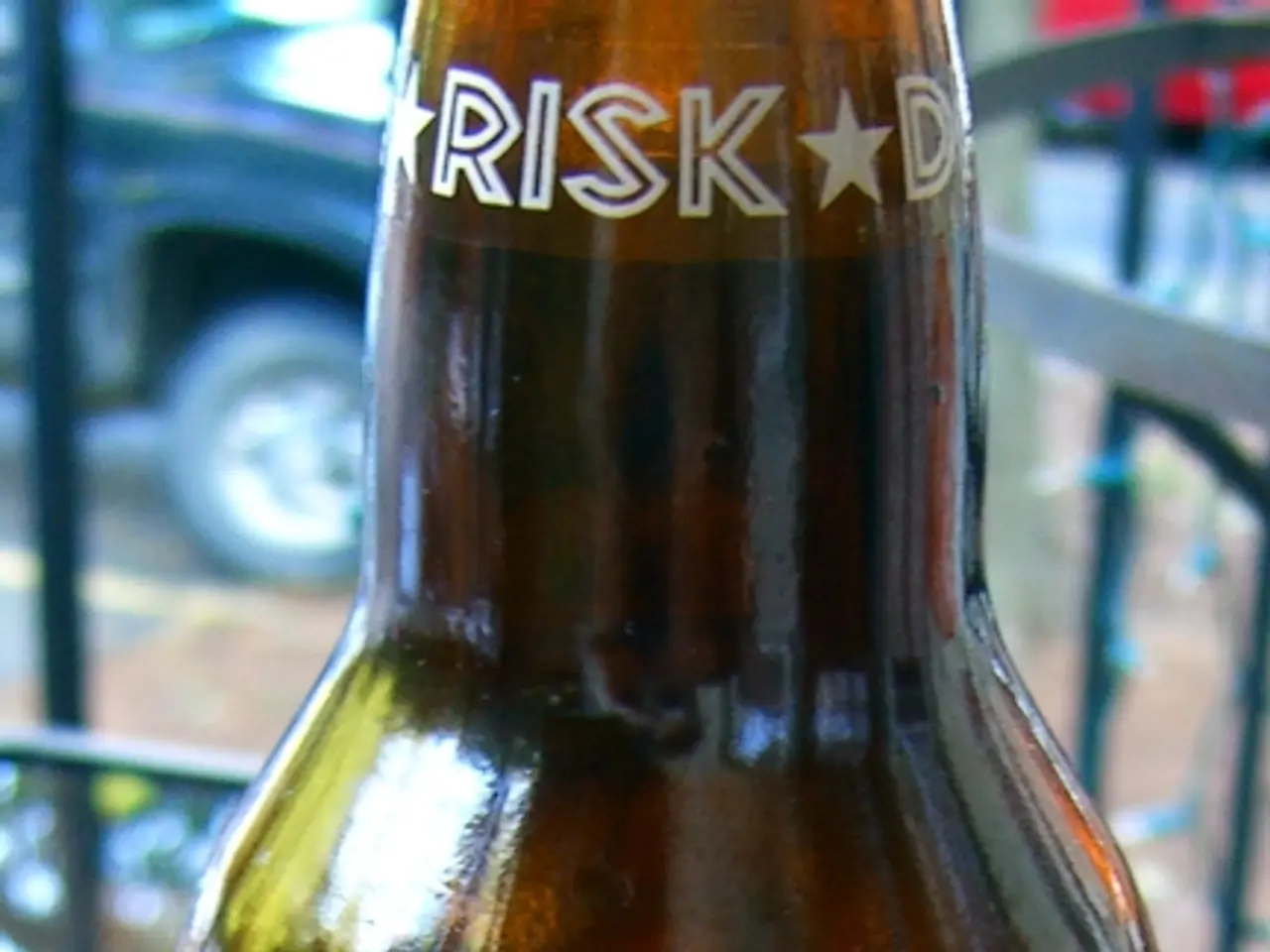"Alcohol faced with potential public backlash movement"
In August 2024, the German Society for Nutrition (DGE) made a significant shift in its alcohol recommendation, stating that there is no healthily harmless amount of alcohol consumption. This decision, which has serious consequences as the organization plays a key role in developing guidelines on nutrition and represents German nutrition science in national and international organizations, has sparked a heated debate across the country.
The focus of this new guideline has shifted to cancer risk, with alcohol no longer just considered a dangerous trigger for stomach and colon cancer, but also for breast and prostate cancer. The World Health Organization (WHO) now recommends cancer warnings on alcohol, stating that the risk is high, with 800,000 people dying annually in Europe due to alcohol-related causes.
However, it's essential to clarify that the current campaign against alcohol, emphasizing that even occasional consumption increases cancer risk, is not primarily driven by the Temperance Movement nor directly connected to its historical links with eugenics or National Socialism.
The Temperance Movement, a powerful social reform movement in the 19th and early 20th centuries, focused on promoting abstinence from alcohol due to its association with social problems such as domestic violence, poverty, and moral decline. Groups like the Woman’s Christian Temperance Union (WCTU), the Anti-Saloon League (ASL), and the Prohibition Party advocated strongly for Prohibition in the United States, culminating in the 18th Amendment and the Prohibition era from 1920 to 1933.
While there were problematic aspects of some historic alliances and ideologies within the broader Temperance and Prohibition movements—including connections with nativist groups and exclusionary politics—there is no strong or direct documented link tying contemporary alcohol-cancer risk campaigns to these historic eugenics or National Socialist associations. Modern cancer risk campaigns are based on epidemiological and biomedical research establishing alcohol as a carcinogen even at low levels of consumption, which reflects advances in medical science rather than social or political agendas inherited from early 20th-century Temperance activism.
Nutrition scientist Nicolai Worm emphasizes that when it comes to health risks, it's crucial to differentiate between types of alcohol, drinking patterns, and food consumption. He states that a glass of wine daily with a Mediterranean meal doesn't increase the risk of cancer or mortality.
On the other hand, the German wine industry is watching with concern as there are significant drops in wine sales due to the undifferentiated "demonization campaign" against alcohol. Winemakers have reported a decrease in sales due to the new guideline on alcohol. The organization Movendi International, which promotes an alcohol-free lifestyle, has been a key player in these discussions, with some connections to the DGE's sources for its new recommendations. Tim Stockwell, a key associate of Movendi International, has been financially supported by the Guttemplers, now known as Movendi International, for over 20 years.
The Guttemplers, who are currently advocating for a peaceful life without addiction and run self-help groups and counseling services for addiction, played an active role under the National Socialists of the Third Reich, supporting the forced sterilization and commitment of alcoholics to camps and insane asylums. This historical context has raised questions about the origins of the current alcohol guideline.
Despite these concerns, it's crucial to approach the new alcohol guideline on its own merits, based on the evidence presented and the scientific consensus. The DGE's new recommendation is based on studies that combine population data in an arbitrary and unscientific manner, according to Worm. The guideline is also influenced by reports from organizations like the Canadian Centre on Substance Use and Addiction, which was largely written by Naimi and Stockwell, associates of Movendi International who have also received financial support from the Guttemplers.
In conclusion, while the historical context of the Temperance Movement and its connections to eugenics and National Socialism are important to understand, the current messaging about alcohol and cancer risk should be understood through the lens of modern scientific consensus rather than as a continuation of Temperance-era political or ideological campaigns. As the debate continues, it's essential to separate fact from fiction and maintain a focus on the health and well-being of individuals.
[1] National Prohibition: A Very Short Introduction. Oxford University Press, 2003. [2] Prohibition in America: A Very Short Introduction. Oxford University Press, 2003. [3] The Drunken Nation: A History of America in 21 Cocktails. W. W. Norton & Company, 2013. [4] The Oxford Handbook of the History of Alcohol and Drugs. Oxford University Press, 2017. [5] The Oxford Handbook of Alcohol and Public Health. Oxford University Press, 2015.
- The German Society for Nutrition's updated alcohol recommendation in 2024 has brought the spotlight on medical-conditions such as cancer, particularly breast and prostate cancer, due to the correlation established between alcohol consumption and these diseases.
- The ongoing debate about the revised guidelines is also intertwined with policy-and-legislation discussions, as the World Health Organization now suggests cancer warnings on alcohol, pointing towards high annual fatalities in Europe due to alcohol-related causes.
- The current campaign against alcohol, emphasizing increased cancer risk even with occasional consumption, is distinct from the historical Temperance Movement and its associations with eugenics or National Socialism.
- Modern alcohol-cancer risk campaigns rely on epidemiological and biomedical research, reflecting advances in science, instead of being rooted in the social or political agendas of early 20th-century Temperance activism.
- The German wine industry is grappling with significant drops in sales due to the new alcohol guidelines, raising concerns about the undifferentiated "demonization campaign" against alcohol and the potential connections between influential organizations in the discussions, like Movendi International.
- The origins of the current alcohol guideline have been questioned, as some historical links between organizations involved in the discussions and the Guttemplers, who played an active role under the National Socialists, have been uncovered. However, the emphasis should be on evaluating the guideline based on its merits and the scientific consensus, rather than viewing it as a continuation of Temperance-era political or ideological campaigns.








